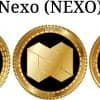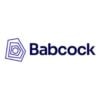- "Learn why innovators shift to DeFI for capital rising"
Innovators in the traditional financial market often raise funds through centralized organizations or communities such as Kickstarter. These initiatives play a significant role in creating a sustainable environment for innovators in the creative space. Individuals or businesses who pitch their ideas in these ecosystems are exposed to opportunities such as funding, community access and expert guidance.
With digital ecosystems coming up, the traditional funding methods are gradually being challenged by innovations such as Decentralized Finance (DeFi). This crypto niche focuses on building a decentralized financial ecosystem where users can access loans, savings and sophisticated market instruments like crypto derivatives.
The past few months have been fascinating for DeFi as innovators and users experience liquidity provision and yield farming incentives. This growth is now attracting more innovations, although access to capital remains a big challenge for most potential ideas. So that begs the question, how can upcoming creatives and innovators raise funding within the DeFi ecosystem?
How to Raise Funding in DeFi
DeFi tokens currently enjoy a market capitalization of $66 billion, about 4.7% of the total crypto market cap. This ecosystem witnessed exponential growth throughout 2020 as projects launched their governance tokens. Inevitably, more DeFi projects have launched and are now looking for funding to advance their ideas.
While some venture capital and private equity firms have taken an interest in DeFi projects, the funding is insufficient for the tons of ideas popping up every other day. This gap has forced DeFi innovators to leverage the ecosystem’s core aspect, decentralization, to build funding solutions for the space. As such, we have decentralized smart contract chains that feature community-owned treasuries where DeFi innovators can access funding.
A Decentralized Community Owned Treasury
Besides relying on VC money, DeFi projects can raise funding through community-owned treasuries governed in a decentralized manner. An example of a DeFi project that has achieved this funding arrangement is the Edgeware smart contract chain, a next-generation platform for decentralized applications. The project features a community-managed treasury, decentralized proposal system and a network of DAOs.
Edgeware’s growing ecosystem offers funding and incentives, including $5M plus in funding per year via grants and investments. Additionally, DeFi innovators building on Edgeware can request up to $100K in funding for an idea, tooling or existing project. Notably, Edgeware allows developers to deploy Solidity/EVM smart contracts, which means that DeFi projects existing on Ethereum can migrate to this platform and leverage the funding opportunities.
The Edgeware smart contract chain also features working groups where developers can share ideas and solve challenges. In addition, the platform runs experimental developer mining and residence programs; the former allows developers to earn usage reward fees while the latter increases their skills. Finally, Edgeware’s governance token EDG holds a record as one of the widest token distributions in crypto, with over 15 million addresses receiving the token during its 2019 lockdrop.
Some people think we’ve been quiet, but the Edgeware community has been building, and you can vote to hear the stories at Dot Decoded- let’s dive into the 6 Edgeware community aiming to present:https://t.co/IJzrWHfhVY
— ❃ Edgeware (@HeyEdgeware) March 19, 2021
Alternative to Traditional Funding Means
Traditional funding means such as bank credit or raising IPOs have long been the backbone of today’s economies. They are now being complemented by emerging trends, including unicorn investing, especially in developed markets. While it has been effective in building Unicorns like Airbnb and Facebook, this type of investing has had its fair share of shortcomings.
For starters, the traditional funding means are centralized, which gives room for unfair treatment of stakeholders in most cases. Startup founders have previously found themselves at a crossroad to take expensive bank credits or give up a larger percentage of their company to VCs or private equity investors.
Given these challenges, decentralized ecosystems pose an alternative funding solution to modern-day startups. Ideally, these ecosystems eliminate centralization, giving all stakeholders an equal opportunity to participate in the funding process or raise funds for their projects. Should the world adapt to digital ecosystems, future market participants will likely shift their interactions to decentralized channels.
Conclusion
As the adage goes, ‘Change is Inevitable’, so is the shift to digital ecosystems. The new era of Web3 technologies supports decentralised applications that enable anyone across the globe to interact with a particular service. These developments are gradually shaping the future of finance and other industries, including logistics and healthcare. Going by the rate of innovation, we are likely to see a fully-fledged decentralized web and financial market in future.





